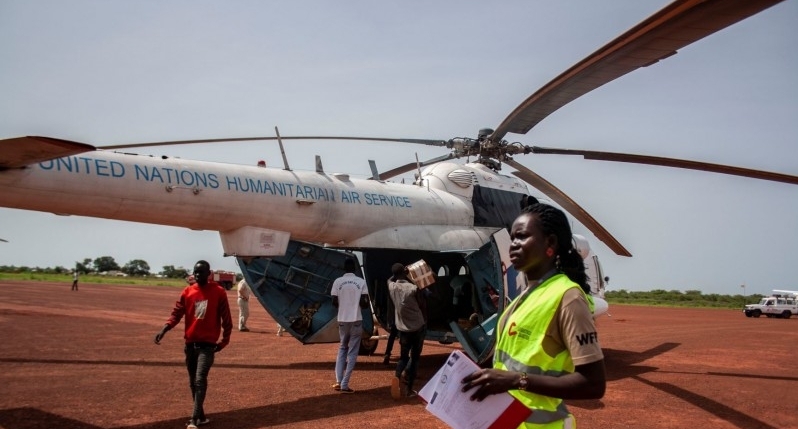EU’s $7.5 mn funding helps WFP provide logistics services in South Sudan
European Union funding of €6.2 million ($7.5 million) helped the World Food Programme (WFP) provide common logistics services critical to reach millions of people in need — for more than 300 humanitarian organisations in South Sudan.

February 03, 2020: European Union funding of €6.2 million ($7.5 million) helped the World Food Programme (WFP) provide common logistics services critical to reach millions of people in need — for more than 300 humanitarian organisations in South Sudan.
The United Nations Humanitarian Air Service (UNHAS) transports 90,000 passengers per year to 55 destinations in the country.
Some of the funding helped the Logistics Cluster, to coordinate logistics activities for the humanitarian response as well as information management to support operational decision-making. In addition, when the humanitarian response was hampered by gaps in the infrastructure, the Logistics Cluster facilitated access to essential services such as trucking and warehousing.
“The needs in South Sudan are enormous,” said Matthew Hollingworth, WFP’s country director. “We are grateful to the EU for the continued support that allows us to provide capacity and expertise to other humanitarian organisations and the government at a time when we need the sum total of each other’s weight to ensure that assistance reaches all in need.”
Since the signing of a peace deal in September 2018, South Sudan has been relatively stable. But despite reduced fighting, 7.5 million people, is in need of humanitarian assistance or protection in 2020 meaning the common logistics services are still essential for all humanitarian responders in the country.
UNHAS is the UN's only mandated humanitarian air service, transporting humanitarian responders and light cargo to areas that would otherwise be inaccessible. The Logistics Cluster provides coordination and information management in emergencies and access to WFP logistics services for the wider humanitarian community.
The European Commission’s Civil Protection and Humanitarian Aid Operations department (ECHO) is a long-standing WFP partner. ECHO has contributed a total of €134 million ($147 million) towards WFP’s activities across South Sudan over the past five years.


